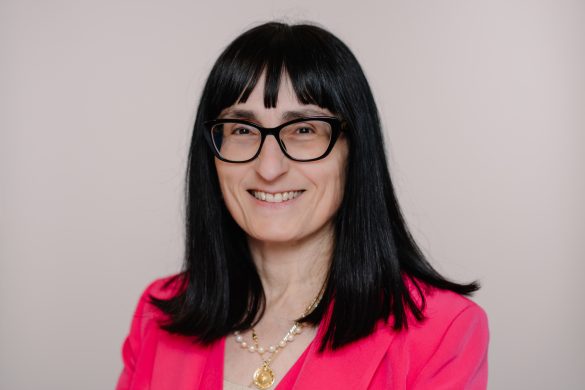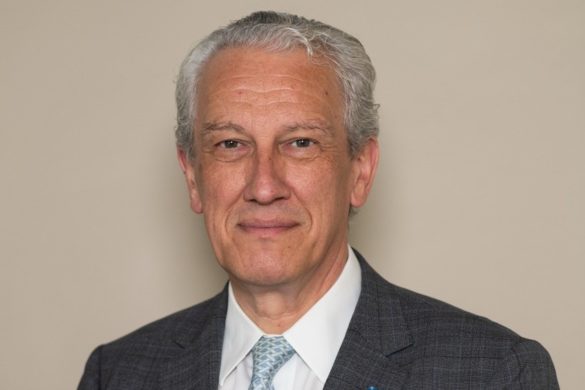
by Elena Moro
For December 2017, we have selected: Dwivedi R, Ramanujam B, Chandra PS, et al. Surgery for drug-resistant epilepsy in children. NEJM 2017;377:1639-1647.
Drug-resistant epilepsy can be particularly devastating in children due to the heavy impact on psychosocial aspects and quality of life of these little patients and their family.
Resective surgery aimed at targeting the epileptic brain region has been shown to be effective in adults, especially temporal lobectomy. There are no controlled surgical trials in children with drug-resistant epilepsy, although the available evidence favors good clinical outcome.
In this prospective, single-center, randomized study, the authors evaluated the 1-year outcome of antiepileptic drug-resistant children and adolescents waiting for surgery in their center (New Delhi, India). Patients were randomized to receive either ad hoc surgery or only medical treatment. At the end of the 1-year study, medically treated patients could receive surgery if still required. To determine the type of surgery needed, patients were assessed with long-term video scalp EEG, brain MRI and, if no definite localization of seizures, with single-photon-emission computed tomography, positron-emission tomography, or magnetoencephalography. If the localization of the epileptic area was unclear, patients were not included in the study. The main outcome was freedom from seizures at 1-year follow-up, assessed in blinded manner using seizure diaries. Secondary outcomes include any occurrence of seizure using the Hague Seizures Severity Scale, the Binet-Kamat intelligent quotient, the social quotient of the Vineland Social Maturity Scale, and the scores on the Child Behaviour Checklist and the Pediatric Quality of Life Inventory.
Over almost a 5-year period, of the enrolled 116 patients 57 underwent surgery, and 59 were assigned to medical treatment only. At 12 months, 44 patients (77%) in the surgical group were seizure-free whereas only 4 (7%) in the medical group (95% CI, 57.8-83.1, p<0.001). In the surgical group, all patients with temporal lobectomy and hypothalamic hamartoma were seizure-free. All secondary outcome measures were significantly improved only in the surgical group, except the Binemat-Kamat intelligent quotient.
Serious adverse events occurred only in the surgical group (19 patients, 33%), and were all related to surgery (two monoparesis, 15 hemiparesis, language deficits).
“This Indian study including a relatively large cohort of children shows that resective surgery is effective in drug-resistant epilepsy, especially temporal lobectomy and hypothalamic hamartoma resection”, says Prof. Tim von Oertzen, Deptartment of Neurology 1, Universitätsklinikum Linz, Austria. “Most patients were cured after surgery which translated in significant improvement in behavior and social measures, and quality of life. Of interest is also, that IQ in the medically treated group significantly worsened in only 12 month. Hence, epilepsy surgery should be performed as early as possible.”
“Nevertheless, although the seizure freedom rate was quite impressive, as compared with adults, a rather high percentage of surgical patients has surgery-related complications,” says Prof. Philippe Kahane, Division of Neurology, CHU of Grenoble, University Grenoble Alpes, France. “Moreover, only seizure diaries were used to score seizures in patients and their family who were not blinded to the treatment. These limitations pin down the need of improving the safety of epilepsy surgery in children, and of objective measures in surgery for children with epilepsy.”
The other nominees for the December 2017 paper of the month are:
- Friberg L and Rosenqvist M. Less dementia with oral anticoagulation in atrial fibrillation. European Heart Journal 2017; 0:1-9. doi: 10.1093/eurhearti/ehx579. In this retrospective Swedish study, 444,106 patients with hospital diagnosis of atrial fibrillation (AF) and no previous diagnosis of dementia were included and followed up to eight years. At the end point, patients who received oral anticoagulant after the AF diagnosis had lower incidence of dementia compared with non-treated patients. There were no differences between warfarin and the novel anticoagulants.
- Camacho-Soto A, Warden MN, Searles Nielsen S, et al. Traumatic brain injury in the prodromal period of Parkinson’s disease: A large epidemiological study using Medicare data. Ann Neurol 2017. doi: 10.1002/ana .25074. Using Medicare claims data, the authors identified 89,790 Parkinson’s disease (PD) patients and 118,095 comparable controls. PD patients presented with greater risk of traumatic brain injury (TBI) in the prodromal phase 5 years prior to diagnosis. The association between PD, TBI, and time was primarily observed for TBI attributed to falls and less evident for other mechanisms of injury. Undetected non-motor and motor symptoms might contribute to falls and hence TBI.
- Epstein K, Viscoli CM, Spence DJ, et al., for the IRIS Trial Investigators. Smoking cessation and outcome after ischemic stroke or TIA. Neurology 2017;89:1723-1729. A prospective observational cohort of 3,876 nondiabetic subjects with stroke or TIA assessed the impact of smoke cessation on outcomes compared to continued smoking. Among smoking quitters, the 5-year risk of stroke, myocardial infarct, or death was 15.7% compared to 22.6% for patients who continued to smoke









